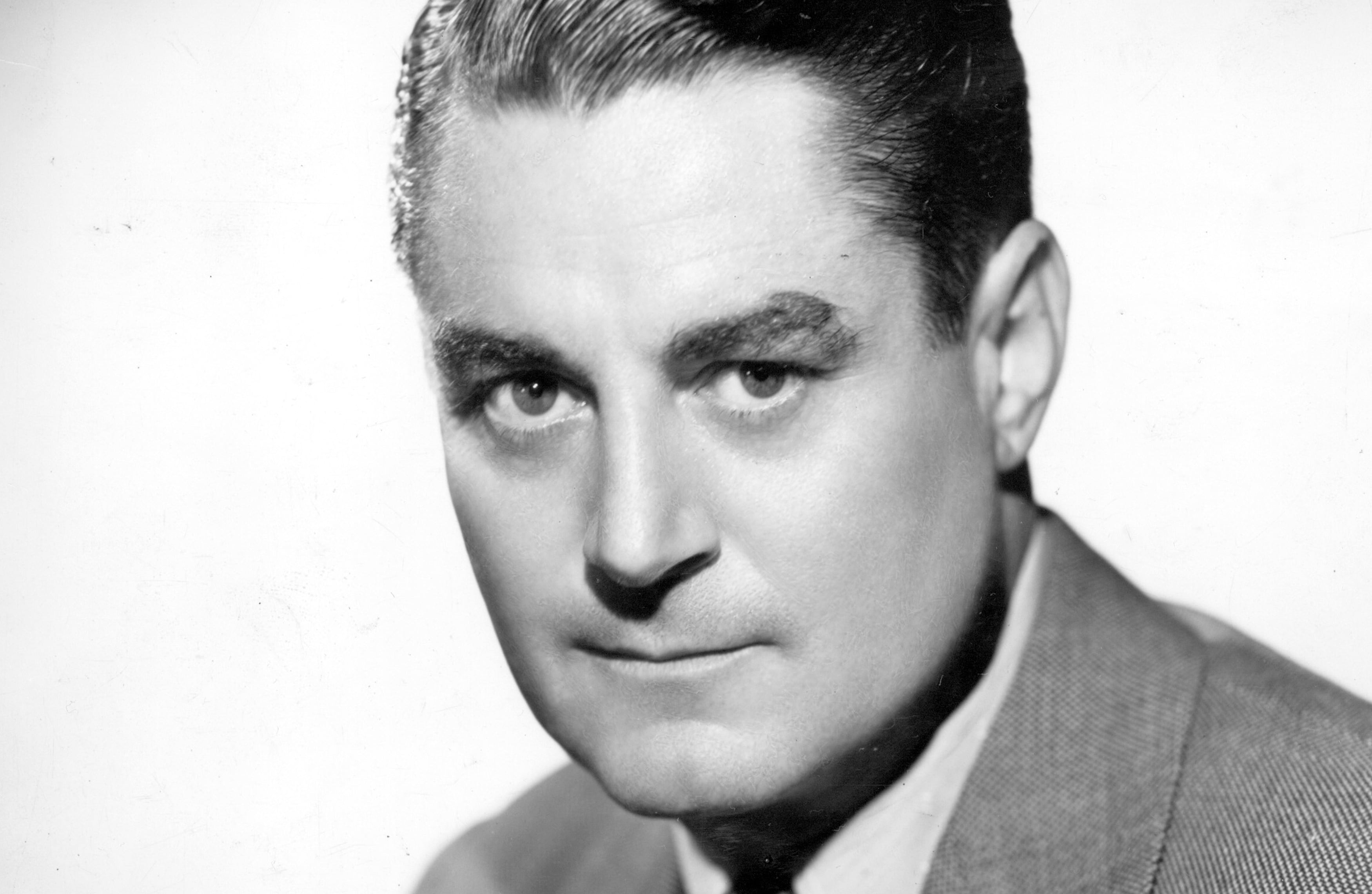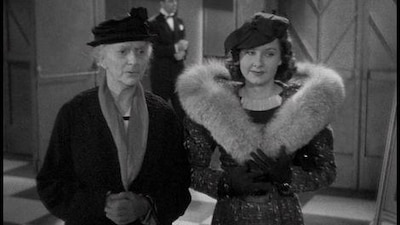Leo Mccarey

About
Biography
Filmography
Family & Companions
Biography
"I was a problem child, and problem children do the seemingly insane because they are trying to find out how to fit into the scheme of things," Leo McCarey once said. Born and raised in Los Angeles, this oldest son of a sports promoter tried his hand at various jobs before finally finding his calling working in the then-fledgling motion picture industry. McCarey attended high school with future filmmakers Tay Garnett and David Butler and briefly had a career as an amateur middleweight boxer. While attending law school at USC, he was involved in a freak elevator accident. Taking the $5,000 he collected in damages, he invested in a copper mine that went bust. After graduating, McCarey worked in a law firm in San Francisco and then opened his own short-lived practice in his hometown. With the failure of his law practice, Leo McCarey turned to vaudeville, writing sketches and songs but that too proved futile. Old friend David Butler interceded and introduced him to Tod Browning. Browning hired him as an assistant and McCarey gradually worked his way up from "script boy" to assistant director. The veteran helmer even allowed him to direct Lon Chaney in one sequence of "Outside the Law" (1921) and was instrumental in his hiring to direct Universal's "Society Secrets" (1921). The results were less than stellar, however, and once again McCarey found himself considered a failure.
In 1923, McCarey caught a break when he was hired as a gag writer and director at Hal Roach Studios. Put to work almost immediately, he wrote scripts for the "Our Gang" films and was paired with comedian Charley Chase for numerous two-reel shorts. McCarey was so successful that within two years, he had been promoted to vice president and supervised the studio's entire two-reel output. Purportedly, he was the idea man behind one of the most successful screen pairings in American cinema history: Stan Laurel and Oliver Hardy. Three of their many films together, "We Faw Down" (1928), "Liberty" and "Wrong Again" (both 1929), were directed by McCarey. By 1929, he felt secure in his abilities and yearned to undertake features, so he resigned from Roach Studios to work freelance.
After stumbling with his first two full-length movies ("The Sophomore" 1929 and "Red Hot Rhythm" 1930), McCarey found success with the Paramount musical "Let's Go Native" (1930). That same year, he also helmed the genial domestic comedy "Part-Time Wife" about a woman so consumed with golf that her husband takes up the sport to save their marriage. Based on that hit, Gloria Swanson approved McCarey as director of "Indiscreet" (1931), Reportedly the script was not in good shape and McCarey re-wrote it in ten days. If that apocryphal story is true it may account for the flatness of this vehicle. He nevertheless remained in demand and was tapped to guide the Eddie Cantor starrer "The Kid From Spain" (1932), which has not aged as well as some of his other work, before agreeing to sign with Paramount, in part because the studio promised him opportunities to helm more dramatic fare.
Ironically, his first assignment at the studio was a comedy, "Duck Soup" (1933), starring the Marx Brothers. Considered one of the best films to feature the zany antics of the comedians, it was typical of the director's work in that he brought a spontaneity and individuality to the anarchic stories. In general, the protagonist (or protagonists) is pushed to expose the contradictions of his or her (or their) beliefs. Although the films are comedic, there is also an undercurrent that treads the fine line between sentiment and melodrama. McCarey tends to manage to toe that line and thus the films retain their freshness some fifty years later. Despite the revisionist take on "Duck Soup," the film was unsuccessful in its initial release. Persevering, McCarey went on to deal with two other comic geniuses, W C Fields in "Six of a Kind" and Mae West in "Belle of the Nineties" (both 1934). One of the director's best efforts was the third remake of "Ruggles of Red Gap" (1935) with Charles Laughton, Charles Ruggles and ZaSu Pitts. Eliciting Laughton's most successful comic performance in this tale of a British manservant who is lost to a millionaire in a poker game, it is the quintessential "fish-out-of-water" tale. He followed with "The Milky Way" (1936), featuring Harold Lloyd as a milkman who is mistaken as prizefighter. Undoubtedly, the fight promoter embodied by Adolphe Menjou possessed more than a passing resemblance to McCarey's father.
For his dream project, "Make Way for Tomorrow" (1937), an adaptation of Josephine Lawrence's novel "The Years Are So Long" about a elderly couple forced by circumstances to turn to their children for assistance. McCarey ran afoul of the studio, Paramount believed the material was not box-office and was reluctant to bankroll the picture. The director went off salary to make what he considered his most personal film. Featuring tour-de-force work from old pros Victor Moore and Beulah Bondi, "Make Way for Tomorrow" was a flop, yet McCarey undercut the inherent sentimentality with a bracing humor and, except for some awkward visuals, the film retains its power. It is also one of the rare instances where a Hollywood movie focused on issues of aging. Although it won respectful notices, its failure to earn money caused the studio to fire McCarey.
Once again a free agent, he was offered an opportunity at Columbia which had just seen the defection of Frank Capra. Harry Cohn hired McCarey to helm the third remake of "The Awful Truth" (1937). The result is one of the most entertaining of the screwball comedies, meticulously acted with comic precision by Cary Grant, Irene Dunne and Ralph Bellamy. Ironically, the director accepted the job solely for the money and was reportedly not interested in the material as written. Encouraging the actors to improvise, the film has a sped up pace and quality that came to be the hallmark of screwball. One of the year's top-grossing motion pictures, the film received five Academy Award nominations and earned an Oscar for McCarey. Now firmly established, he signed a contract with RKO and made one of his most famous romances, "Love Affair" (1939). A shipboard romance between a gigolo (Charles Boyer) and a singer (Irene Dunne), the film begins as a comedy before veering into melodrama. Somehow, McCarey's alchemy worked as he blended what could have been either a sentimental love story or a light comedy into a stellar concoction.
The 40s brought misfortune though. Injured in a 1939 car accident and confined to a wheelchair, McCarey could only serve as producer on a reteaming of Grant and Dunne in "My Favorite Wife" (1940). Between 1940 and 1942, he was involved in protracted litigation with Howard Hughes over a project that never got made and returned behind the camera on "Once Upon a Honeymoon" (1942), an odd hybrid of comedy and drama featuring Ginger Rogers as burlesque star who marries a secret Nazi agent (Walter Slezak) and is rescued by a radio reporter (Cary Grant). By mid-decade, however, McCarey was to create one of his most enduring films, the Oscar-winning "Going My Way" (1944). Although it is often dismissed as sentimental claptrap because it features a singing priest, the film is not simpleminded nor uncritical. A popular success the film spawned a sequel "The Bells of St. Mary's" (1945) for which McCarey formed Rainbow Productions (which he later sold to Paramount).
From 1940 on, McCarey's output slowed, often with several years passing between projects. Reportedly he was battling alcoholism and an addiction to painkillers. The handful of features he made after winning his second Academy Award are of varying quality and tended more toward the sentimental than his earlier work. In the 50s, McCarey was a virulent anti-Communist (even testifying voluntarily before the House Committee on Un-American Activities). He produced and directed the melodramatic "My Son John" (1951) about parents who gradually come to realize that their son is a Communist spy. Of his later films, only "An Affair to Remember" (1957), a remake of his own "Love Affair," stands out. While the story hued to the original, with Cary Grant and Deborah Kerr in the leading roles, it proved less poignant. His final film was "Satan Never Sleeps" (1962), another anti-Communist tale about a young priest clashing with his superior that played as a riff on "Going My Way." The legacy of Leo McCarey has divided critics, many of whom seem to concur that he was better at creating isolated moments than crafting great movies. Still, he made important contributions to comedy and a handful of his films have retained their capacity to touch the viewer's emotions.
Filmography
Director (Feature Film)
Cast (Feature Film)
Writer (Feature Film)
Producer (Feature Film)
Music (Feature Film)
Production Companies (Feature Film)
Misc. Crew (Feature Film)
Director (Special)
Writer (Special)
Special Thanks (Special)
Director (Short)
Writer (Short)
Misc. Crew (Short)
Life Events
1916
Opened own law offices in Los Angeles; soon after, proved unsuccessful and closed down
1918
After trying to sell songs, entered films (with help of friend David Butler), worked as assistant script supervisor to Tod Browning
1921
Directed one sequence in "Outside the Law", helmed by Tod Browning
1921
Isloated feature directing debut, "Society Secrets"
1923
Joined Hal Roach studios, turning out numerous shorts beginning with "Publicity Pays" (1924)
1926
Named vice president in charge of production at Roach
1929
Left Roach to work freelance
1930
Helmed first dramatic film "Wild Company"
1931
Directed Gloria Swanson in "Indiscreet"; reportedly rewrote the script just ten days before filming
1934
Guided an all-star cast including Burns and Allen, Charles Ruggles and W C Fields in "Six of a Kind"
1934
Helmed "Belle of the Nineties", written and starring Mae West
1935
Had success with "Ruggles of Red Gap", starring Charles Laughton
1936
Continued with comedies, directing Harold LLoyd in "The Milky Way"
1937
Offered to go off salary to be allowed to film "Make Way for Tomorrow"; when film proved a boxoffice failure, fired by Paramount
1937
Hired by Columbia for one-shot directing gig; won first Best Director Oscar for the screwball comedy "The Awful Truth", starring Irene Dunne and Cary Grant
1939
First film for RKO, "Love Affair", starring Charles Boyer and Irene Dunne
1939
Injured in a car accident
1940
Due to injuries, served as producer on "My Favorite Wife", reteaming Dunne and Grant
1944
Received second Best Director Oscar for "Going My Way", starring Bing Crosby
1945
Named "top employee in the country," having earned in one year a salary of $1,113,035
1952
Helmed the anti-Communist propaganda film "My Son John", with Helen Hayes
1957
Remade "Love Affair" as "An Affair to Remember", teaming Cary Grant and Deborah Kerr
1962
Final film, "Satan Never Sleeps"
Photo Collections
Videos
Movie Clip












Trailer








Family
Companions












